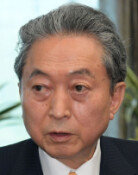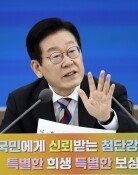Evaluation of govt's economic performance
Evaluation of govt's economic performance
Posted August. 24, 2000 20:01,
On Friday, August 25, it will be exactly two years and six months since the current government came into power. At the turning point for the present administration, when evaluating various economic figures during the period, it is clear the current government has achieved a significant amount. On the whole, growth, inflation, unemployment and other real economic elements have improved considerably. No doubt, we must concur with the government`s claim that the foreign currency crisis was overcome in a short span of time unprecedented in world history.
Still, there are limitations in evaluating the performance of the current government as growth statistics have been derived using the base year in which the so-called ¡°IMF crisis¡± was in full force. Stock prices, which are considered the real criteria for market evaluations, have actually taken a step backward. In addition, with the restructuring process remaining incomplete, the actual economic condition is less than impressive.
Macroeconomic indices improve:
Statistics disclosed by the Ministry of Finance and Economy for the two-and-a-half year old government August 24 show that Korea`s economy recovered from its first-ever contraction in 1998, growing by 10.7% last year and 11.1% in the first half of this year. The unemployment rate, which soared to 8.6% right after the foreign currency crisis, has dropped to the 3% level. In actuality, the point of full employment has been reached. Inflation has been reined in to the 2% level after recording 7.5% in 1998. The leading indicator for the real economy, the operation rate of the manufacturing sector, recovered to the pre-crisis level in the first half of this year, soaring to 80% from the 60% level posted in 1998. Corporate insolvencies have also steadily declined. Oppressively high market interest rates (3-year corporate bonds), which spurred a chain of bankruptcies, have stabilized to the single digit level since October 1998, overcoming the peak of 30%. The exchange rate, which rose to 1964 won to the dollar, has fallen to 1110. Foreign exchange holdings have increased to U$ 90.4 billion from a low of U$ 3.9 billion won in December 1997.
Unstable stock market:
The local bourse played an important role in dragging Korea out of the IMF bailout. Domestic companies took advantage of the bullish market and procured more than 72 trillion won in funds (including Kosdaq) and in turn enhanced their financial status. KSE-listed companies posted a net loss of 12.43 trillion won in 1998, but in the first half of this year, a 10.39 trillion won net profit was recorded, successfully bringing them into the black. However, the excessive supply of stocks has brought on a chronic supply/demand imbalance, which is keeping the market down.







